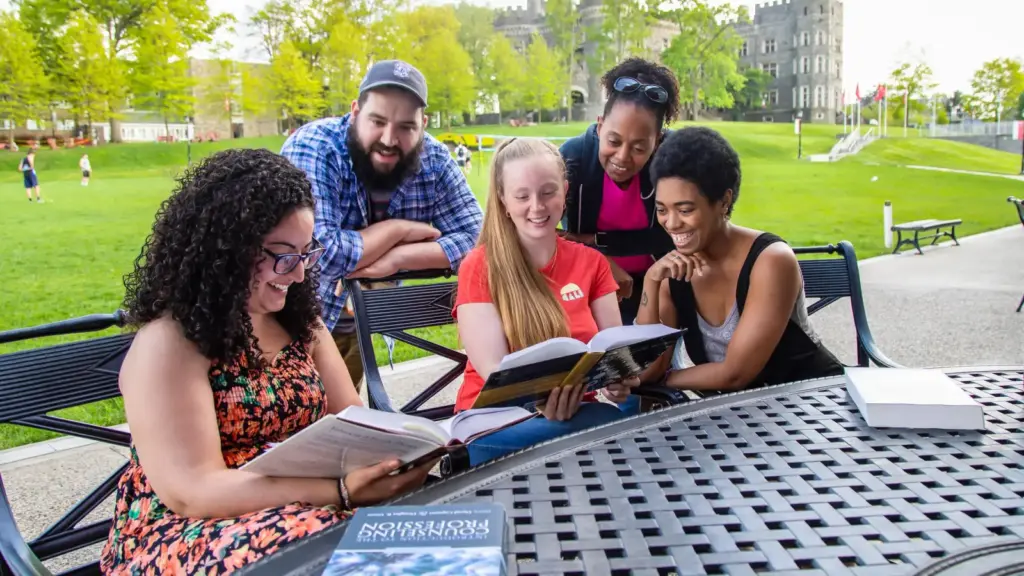Overview
- Degree Level
- Graduate
- Degrees Offered
- Dual Degree: MAC/IPCR
- school/college
- College of Arts and Sciences

In this unique dual degree program, students work toward two separate Masters degrees: Masters of Arts in Counseling (MAC) with a Trauma Concentration and Master of Arts in International Peace and Conflict Resolution (MAIPCR). This program is for students with specific interests in trauma recovery at an international scale, as well students interested in serving the increasing number of refugees and asylum seekers in the United States. This program prepares students to become licensed as professional counselors in Pennsylvania and positions students to plan and implement programs that facilitate psychological recovery from violence and natural disasters, both domestically and abroad.
As a dual degree student, you gain a greater understanding of the scope of both counseling and international peace and conflict resolution issues surrounding communities and individuals living in and/or impacted by trauma. By training in both trauma-specific counseling and international peace and conflict resolution you will be well-positioned to plan and implement programs that facilitate psychological recovery from violence and natural disasters, both domestically and abroad.
Required Course
In this practicum in the mediation process, you will examine the range of strategic choices available for managing conflict, including techniques that have proved most constructive in the field of peace and conflict resolution: consensus-based mediation. In the first part of the course, you will be introduced to differing approaches to managing and resolving conflict, how the mediation process works and variety of contexts in which it is likely to be used with success. In the second part of the course, you will learn by designing and conducting a mediation on a selected case in contemporary international relations.
Elective Course
Return to campus in the spring of their second year to complete a culminating activity that bridges coursework, study away and internship experiences. During this seminar, you will meet weekly and learn through a workshop format. Your Capstone culminates in a public presentation of the project during the university-wide Capstone week.
Elective Course
You will learn through this graduate-level introduction to the interdisciplinary field of peace and conflict studies, its relationship with other academic disciplines, and careers in the field of conflict resolution. Draws upon a variety of disciplines, especially in the social sciences, to examine the interrelationship between personal, collective, national and global levels of violence and war and efforts to reduce it. Study course objectives including familiarity with the causes, symptoms and dynamics of conflict, violence, and war (from interpersonal to global) and conflict resolution.
Elective Course
Explore an overview of evidence-based treatments for victims of a variety of trauma-related events. Through demonstrations, role-plays, discussions, experiential activities, and readings, you will gain foundational skills in trauma assessment and treatment with an emphasis on cultural competence.
